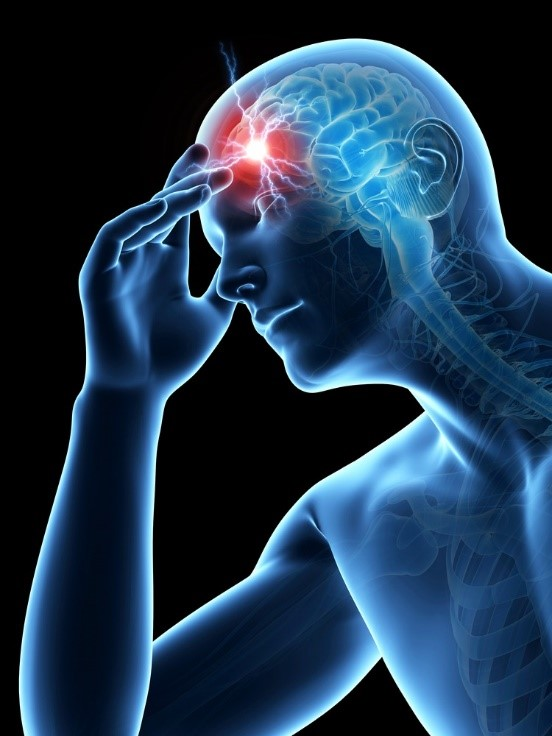STROKE
Maria Dalamagka
Stroke has always been a much-feared medical emergency, and rightly so. Someone in the United States has a stroke every 40 seconds, and someone dies of a stroke every four minutes, amounting to 795,000 strokes and 137,000 deaths annually. Stroke is the third leading cause of death in the United States, behind heart disease and cancer.
Not all strokes are preventable, so it is very important to recognize the early signs of stroke and get treatment as rapidly as possible. Stroke damages brain tissue, but that loss can be minimized by getting quickly to an emergency room that can connect to a rapid-response stroke center.
Everyone should learn the following warning signs of stroke. If you experience any of these symptoms, immediately dial 911 or go to an emergency room:
weakness in an arm, hand, or leg
numbness on one side of the body
sudden dimness or loss of vision, particularly in one eye
sudden difficulty speaking
inability to understand what someone is saying
dizziness or loss of balance
sudden, lasting, excruciating headache.
It is difficult to overemphasize the importance of identifying and treating a stroke as soon as possible. Warning signs can begin anywhere from a few minutes to days before a stroke (see “Stroke warning signs and symptoms,” above). In a Gallup survey, 97% of people over age 50 did not recognize the warning signs of a stroke. Everyone, especially those who are at increased risk for stroke, should learn these warning signs and know what to do if they occur. The National Stroke Association has devised the FAST checklist (see “Act FAST”) to help determine whether a person is having a stroke.
| ACT FAST If the answer to any of the questions below is yes, there’s a high probability that the person is having a stroke. | |
| Face | Ask the person to smile. Does one side of the face droop? |
| Arms | Ask the person to raise both arms. Does one arm drift downward? |
| Speech | Ask the person to repeat a simple sentence. Are the words slurred? Does he or she fail to repeat the sentence correctly? |
| Time | If the answer to any of these questions is yes, time is important. Call 911 or get to the hospital fast. Brain cells are dying. |
When stroke symptoms occur, quick action is vital. If you think you or someone with you is having a stroke or transient ischemic attack (TIA), call 911. You should be taken to a hospital emergency room, preferably one that specializes in treating stroke as it occurs (called acute stroke). If you know you are at risk for stroke, find out ahead of time the name and location of the nearest hospital that specializes in treating acute stroke.
Since the 1980s, researchers have developed rapid, safe, and effective diagnostic techniques that accurately identify the extent and location of a stroke and the nature of the blood vessel (vascular) problem causing it. The goal of treatment is to restore blood circulation before brain tissue dies. The time frame for reaching this goal is frighteningly slim. To prevent brain cell death that is significant enough to cause disability, treatment is most effective if it starts within 60 minutes of the onset of symptoms.
One of the main clot-dissolving drugs, recombinant tissue-plasminogen activator (tPA), must be given within three hours of the start of stroke symptoms, but earlier is better. An important goal of research is to find treatments that can buy time by protecting the patient’s brain until blood circulation is restored, thus improving the odds of survival and decreasing disability.




Great reminder on stroke.
ReplyDeleteWatch the official FAST video, and print out FAST brochures, for free, here:
www.MAClearinghouse.com/CatalogPageHDSP.htm
www.mass.gov/dph/heartstroke
-------------------------------------------
Действительно ли это cердечный приступ?
Проверьте эти признаки БЫСТРО! FAST.
Face----Лицо: Лицо выглядит неравным?
Arm---- Рука: Рука медленно падает?
Speech-Речь: Их речь кажется странной?
Time--- Время: Пришло время звонить 9-1-1!
Check these signs FAST!
Face: Does the face look uneven?
Arm: Does the arm drift down?
Speech: Does their speech sound strange?
Time: It’s time to call 9-1-1!